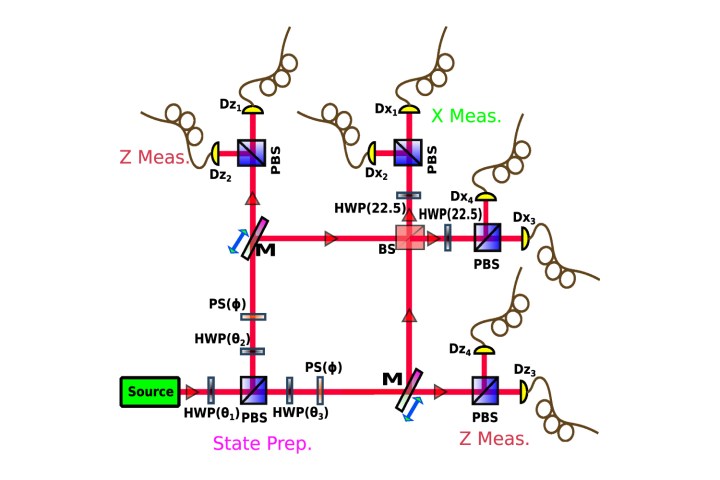
While this might sound like the kind of brain-teasers algorithm geeks play around with over a beer on a Friday night, however, it’s not purely an academic problem. When it comes to security, our faith in encryption services relies on people knowing for certain that the long strings of seemingly random numbers generated can’t be decoded by potential adversaries.
But don’t worry: there’s hope — and it comes in the form of quantum mechanics.
“The idea boils down to dividing the hardware in two parts, placing them in different locations and looking for correlations that can be only explained by quantum mechanics — which is intrinsically random theory,” Marcin Pawłowski, a researcher at Poland’s University of Gdańsk, tells Digital Trends. “The problem is that you have to have really state-of-the-art hardware and even then you only get a tiny amount of random numbers per hour which makes the whole thing unpractical.”
This is where the work of Pawłowski and his colleagues — summarized in a new paper in the New Journal of Physics — comes in. What they have created is an algorithm which ensures that seemingly random numbers really are as random as they look. “We believe, and our paper proves, that in quantum experiments much more randomness is generated than was certified using previously known methods,” Pawłowski continues.
Unlike the “pseudorandom” numbers thrown out by computer algorithms, this method utilizes the randomness of physical systems — in this instance a laser and some crystals, mirrors and other optical elements, as well as a photon detector. The result is considerably more efficient than other methods: not only faster, but also more cost effective since it doesn’t require too much expensive hardware to pull off.
“It is possible to build a practical device based on the experiment that we report on in the paper,” Pawłowski concludes. “Then you can use our new method for randomness certification and one can make true random numbers — and hence secure communication — available. I say this honestly: I really believe we can improve the security of communication for everyone.”
Where do we sign up?


